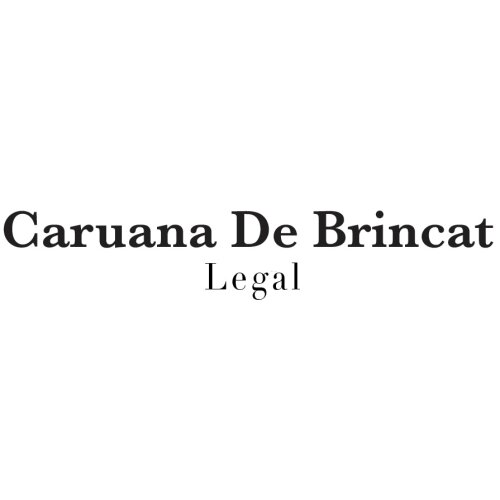Best Employment Benefits & Executive Compensation Lawyers in Malta
Share your needs with us, get contacted by law firms.
Free. Takes 2 min.
Or refine your search by selecting a city:
List of the best lawyers in Malta
About Employment Benefits & Executive Compensation Law in Malta
Employment Benefits & Executive Compensation law in Malta encompasses regulations and practices related to the remuneration, bonuses, benefits, and other compensatory aspects offered to employees and executives. These laws ensure that employment agreements are fair and comply with national standards, protect both employers and employees, and promote workplace productivity and satisfaction. The Maltese legal framework is influenced by both European Union directives and local legislation, ensuring broad protection and compliance in matters of benefits and compensation.
Why You May Need a Lawyer
There are several situations in which individuals or companies may require legal assistance in the realm of Employment Benefits & Executive Compensation. These include negotiating and drafting employment contracts, resolving disputes over compensation packages, ensuring compliance with relevant regulations, and advising on the implementation of benefit schemes. Additionally, businesses may need legal guidance when restructuring executive compensation programs, addressing issues of discrimination or unfair dismissal, or managing the exit process for senior executives. Legal expertise can help navigate these complex issues and protect the interests of all parties involved.
Local Laws Overview
In Malta, Employment Benefits & Executive Compensation are primarily regulated by the Employment and Industrial Relations Act (EIRA) along with various subsidiary legislation and EU regulations. Key aspects include the mandatory provisions for minimum wage and standard employment conditions, as well as directives concerning working hours, leave entitlements, and occupational health and safety. Executive compensation may also be influenced by corporate governance codes, particularly for publicly listed companies. It is crucial for companies to adhere to these laws to avoid legal disputes and penalties.
Frequently Asked Questions
What are the minimum requirements for employee benefits in Malta?
Malta's Employment and Industrial Relations Act stipulates minimum requirements for wages, working hours, paid leave, sick leave, and other basic employment conditions that must be met by employers.
How are executive compensation packages structured in Malta?
Executive compensation packages in Malta typically include a base salary, annual bonuses, stock options, pension schemes, and other perks. These packages should comply with local laws and corporate governance requirements where applicable.
Are there any tax implications for employee benefits in Malta?
Yes, certain employment benefits may attract tax implications. For example, fringe benefits may be subject to tax, and it's advisable to consult with a tax professional to understand specific obligations.
How does one resolve a dispute over employment compensation?
Disputes can be resolved through negotiation, mediation, or formal proceedings in the Industrial Tribunal or civil courts, depending on the complexity and nature of the issue.
Can employers in Malta offer different compensation packages for similar roles?
While employers can offer different packages, they must ensure that the compensation structure is not discriminatory and complies with equality laws in Malta.
What protection is available for employees regarding wage payment?
The law mandates timely payment of wages and provides mechanisms for employees to claim unpaid wages, including seeking intervention from the Department of Industrial and Employment Relations.
Are stock options a common part of executive compensation in Malta?
Stock options are increasingly included in executive compensation packages, particularly in multinational and public companies, as a means of aligning executives’ interests with shareholders.
How can companies ensure compliance with benefit regulations?
Employers can ensure compliance by regularly reviewing employment contracts, updating policies in line with legislative changes, and seeking legal advice when needed.
Is it mandatory to provide pension plans for employees in Malta?
While it is not mandatory for employers to offer private pension plans, Malta has a social security pension system to which both employers and employees contribute.
How does the law handle executive termination and severance pay?
Severance pay and termination terms should be clearly outlined in the executive's contract, adhering to both legal stipulations and negotiated terms to avoid disputes.
Additional Resources
Those seeking further information on Employment Benefits & Executive Compensation in Malta can refer to organizations such as the Department of Industrial and Employment Relations, the Malta Chamber of Commerce, Enterprise and Industry, and local legal firms specializing in employment law. Additionally, consulting with the Malta Financial Services Authority (MFSA) might provide insights into the regulatory environment for executive compensation within financial sectors.
Next Steps
If you need legal assistance regarding Employment Benefits & Executive Compensation, consider reaching out to a qualified lawyer with experience in Maltese employment law. To begin, compile all relevant documents and provide any applicable details about your situation. Consult with multiple legal professionals to find the right fit for your needs, and ensure that they have a deep understanding of both local and European Union employment legislation. Establishing a strong legal partnership is crucial to navigating effectively through potential disputes and ensuring compliance with all applicable laws.
Lawzana helps you find the best lawyers and law firms in Malta through a curated and pre-screened list of qualified legal professionals. Our platform offers rankings and detailed profiles of attorneys and law firms, allowing you to compare based on practice areas, including Employment Benefits & Executive Compensation, experience, and client feedback.
Each profile includes a description of the firm's areas of practice, client reviews, team members and partners, year of establishment, spoken languages, office locations, contact information, social media presence, and any published articles or resources. Most firms on our platform speak English and are experienced in both local and international legal matters.
Get a quote from top-rated law firms in Malta — quickly, securely, and without unnecessary hassle.
Disclaimer:
The information provided on this page is for general informational purposes only and does not constitute legal advice. While we strive to ensure the accuracy and relevance of the content, legal information may change over time, and interpretations of the law can vary. You should always consult with a qualified legal professional for advice specific to your situation.
We disclaim all liability for actions taken or not taken based on the content of this page. If you believe any information is incorrect or outdated, please contact us, and we will review and update it where appropriate.
Browse employment benefits & executive compensation law firms by city in Malta
Refine your search by selecting a city.

















